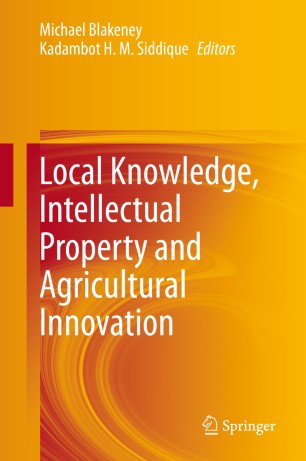

Most ebook files are in PDF format, so you can easily read them using various software such as Foxit Reader or directly on the Google Chrome browser.
Some ebook files are released by publishers in other formats such as .awz, .mobi, .epub, .fb2, etc. You may need to install specific software to read these formats on mobile/PC, such as Calibre.
Please read the tutorial at this link: https://ebookbell.com/faq
We offer FREE conversion to the popular formats you request; however, this may take some time. Therefore, right after payment, please email us, and we will try to provide the service as quickly as possible.
For some exceptional file formats or broken links (if any), please refrain from opening any disputes. Instead, email us first, and we will try to assist within a maximum of 6 hours.
EbookBell Team

5.0
78 reviewsThis book examines the role of local knowledge in promoting agricultural innovation and legislative support for agricultural innovation through intellectual property laws and the protection of farmers’ rights. In assessing the role of intellectual property in promoting agricultural innovation the book examines plant variety rights protection, the patenting of plant varieties and plant breeding methods; gene patents and climate change; open source biotechnology and agricultural innovation and geographical indications and the marketing of agricultural products.
As a test bed for the application of the themes of the book, it applies a case study approach to look at the role of local knowledge and intellectual property rights in the cultivation of traditional rice varieties in Kerala, South West India and the extent to which this cultivation is supported by Indian legislation. The book concludes with an examination of the success of self-help groups, such as Farmers’ Clubs.
This book appeals to all readers interested in policies to promote sustainable agriculture at a time of increasing food insecurity. A special feature of the book is the case study approach. To date, the role of local knowledge and agricultural innovation has been almost entirely ignored and the role of intellectual property in this space has been largely ignored. The book is a result of a research collaboration between the University of Western Australia and Kerala Agricultural University, funded in part by the Australian Research Council.